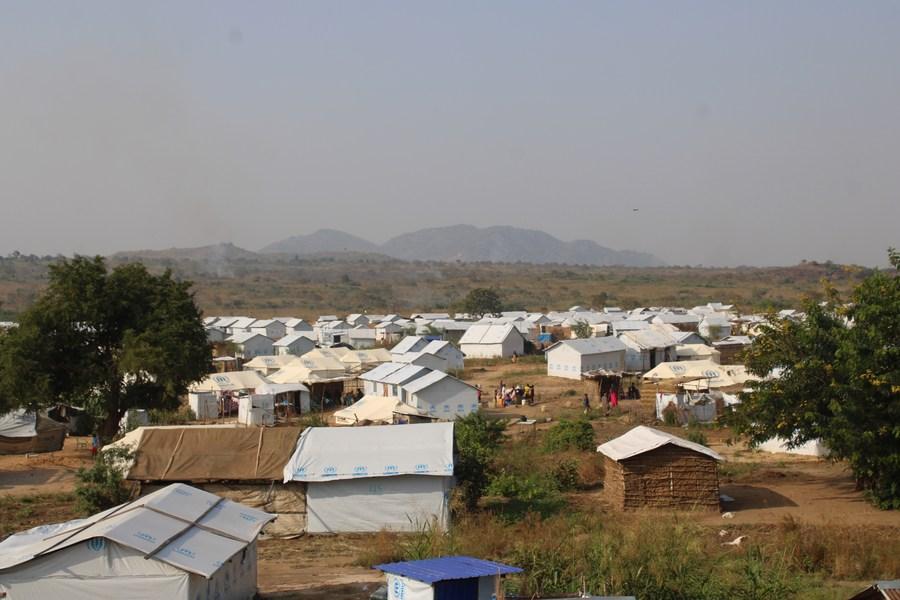

A group of refugees is seen at Gorom refugee settlement in
Juba, capital of South Sudan, on Dec. 7, 2023. [Photo/Xinhua]
A Chinese envoy on Tuesday called on the international community to help advance the political process in South Sudan and support the country in strengthening capacity-building in the security sector.
This year is of great significance for South Sudan in terms of promoting political transition and peaceful development. China believes that the international community should increase its support, said Dai Bing, the charge d'affaires of the Chinese mission to the United Nations.
China supports the South Sudanese parties in accelerating the implementation of the peace agreement and the key benchmarks of the roadmap on extending the transitional period, so as to create conditions conducive to the political transition and the holding of general elections. China encourages the trilateral mechanism of the African Union, the Intergovernmental Authority on Development, and the United Nations to provide more support to the political process in South Sudan, he told the Security Council.
"It should be pointed out that elections are an internal affair of South Sudan. At present, the country is facing numerous practical difficulties in promoting political transition and preparing for general elections. The international community must remain patient and continue to engage with the country while fully respecting its sovereignty and ownership," said Dai.
In particular, the international community should draw lessons from the recent turmoil in some African countries and avoid intervening in South Sudan's internal affairs by exerting pressure or forcing a "democratic transition." Doing so will not contribute to the long-term stability of South Sudan. It may, on the contrary, bring about new turbulence, he said.
The international community and the UN Mission in South Sudan (UNMISS) should prioritize support for the South Sudanese authorities in strengthening their capacity-building in the security sector and assuming primary responsibility for the protection of civilians. The arms embargo has long had a negative impact on the security capacity-building in South Sudan. The Security Council should heed the calls of South Sudan and other African countries and lift the arms embargo as soon as possible, said Dai.
The conflict in neighboring Sudan has exacerbated the humanitarian crisis in South Sudan and poses a potential security risk. The international partners should help South Sudan respond to the humanitarian crisis and mitigate the spillover effect of the Sudanese conflict on South Sudan and other neighboring countries, with a view to maintaining common regional security, he said.
UNMISS should focus on its core mandate. In recent years, some individual countries have been pushing for the expansion of the mandate of UNMISS, including by over-emphasizing the use of force as a priority means of civilian protection. This not only interferes with the primary responsibility of peacekeeping operations, but also increases the strain on the resources at the disposal of UNMISS. China hopes that the Security Council will make UNMISS focus on its core functions as a peacekeeping operation and make sure that relevant tasks are in line with the needs and priorities of the host country so that the mission can play its role in an effective manner, said Dai.
